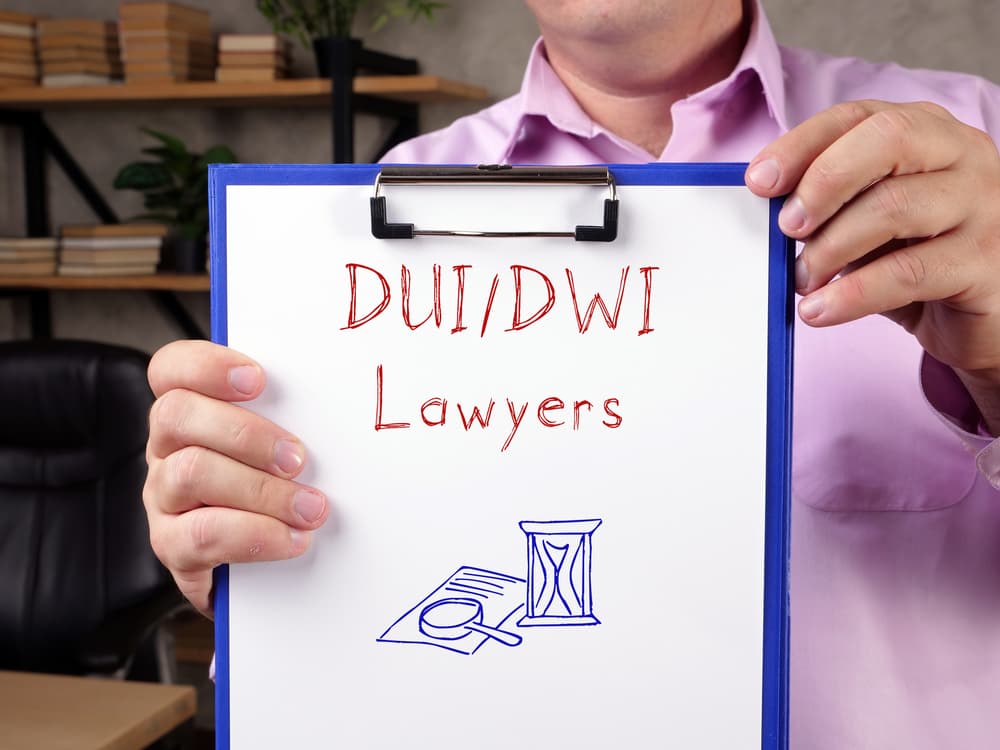Should I Get a Lawyer after a DWI?

A DWI charge, or Driving While Intoxicated, means you are accused of operating a vehicle while under the influence of alcohol or drugs. It is a serious criminal offense that can lead to harsh penalties like fines, license suspension, and even jail time upon conviction. It can also result in various collateral consequences that affect certain aspects of your life.
If you face a DWI charge, hiring a lawyer is one of the most important steps you can take. A skilled lawyer experienced in DWI cases understands the legal process, knows how to challenge the evidence against you, and can protect your rights at every stage of your case.
They can negotiate for reduced charges, fight to keep your license, or even get the case dismissed. With so much at risk, having an experienced lawyer on your side can make a big difference in the outcome of your case.
What is a DWI Charge?

A DWI charge, which stands for “Driving While Intoxicated,” is a serious criminal offense that occurs when someone operates a motor vehicle while under the influence of alcohol or drugs.
In many places, law enforcement uses the term DWI or DUI (Driving Under the Influence) to describe this offense, depending on the jurisdiction. Regardless of the term used, the legal consequences can be severe, including fines, license suspension, and even jail time.
To convict someone of a DWI, the prosecutor must prove several key elements beyond a reasonable doubt. First, they must show that the person charged was actually driving the vehicle. Simply being in the car isn’t enough; there must be evidence that the individual had control of the vehicle while it was in motion or ready to move.
Second, the prosecutor must prove that the driver was impaired by alcohol, drugs, or a combination of both. This can be done in a few different ways.
One of the most common is through chemical testing, such as a Breathalyzer or blood test. If the driver’s blood alcohol concentration (BAC) is at or above the legal limit—usually 0.08 percent for adults—this can serve as strong evidence of intoxication.
However, even if the BAC is lower than the legal limit, the prosecutor can still try to prove that the driver was impaired based on their behavior, appearance, and performance on field sobriety tests.
Third, there must be a connection between the impairment and the act of driving. For example, if a driver was swerving, ran a red light, or caused an accident, this may support the claim that they were driving while impaired.
Without clear evidence for each of these elements, a conviction is unlikely.
Penalties and Other Consequences of a DWI Conviction

A DWI conviction can lead to serious penalties and long-lasting consequences that go beyond the courtroom. Even a first offense can affect many areas of a person’s life.
The penalties for a DWI usually depend on factors like whether it’s a first-time or repeat offense, how high the blood alcohol concentration (BAC) was, and whether anyone suffered an injury as a result of the impaired driving.
For a first offense, penalties often include a fine, mandatory DUI education classes, and a driver’s license suspension. In some cases, the court may allow the person to continue driving, but only if they install an ignition interlock device (IID) in their car.
This device requires the driver to pass a breath test before the vehicle will start. In addition to these penalties, a first-time offender might face probation and possibly even a short jail sentence, depending on the facts of the case.
For second or third offenses, the penalties get much more severe. Fines increase, the driver’s license may be suspended for a longer time, and jail time becomes more likely.
A repeat offender may need to attend more intensive treatment programs or complete a longer period of DWI education. In some situations, a DWI can even be charged as a felony—especially if someone suffered an injury or was killed during the incident. Felony charges carry the possibility of years in prison.
Beyond criminal penalties, a DWI conviction can also lead to collateral consequences. These include higher car insurance rates, job loss or difficulty finding employment, and problems with professional licenses. Some schools and employers may also take disciplinary action. A conviction stays on a person’s record for many years, which can hurt their reputation and make it harder to move forward.
In short, the penalties for a DWI are serious and can follow a person for a long time. From fines and jail time to losing a job or professional license, the consequences go far beyond just a court sentence. That’s why it’s important to understand what’s at stake and to take any DWI charge seriously.
What are the Qualities of a Good DWI Defense Lawyer?

When facing a DWI charge, choosing the right defense attorney can make a big difference in how your case turns out. A good DWI defense attorney has several important qualities that set them apart.
These qualities can help them protect your rights, build a strong defense, and work toward the best possible outcome.
- One of the most important qualities is experience. You want an attorney who has handled many DWI cases before and understands how the system works. Experienced attorneys know the law, local court procedures, and what strategies tend to work with judges and prosecutors. They can also spot weaknesses in the evidence against you and use that to your advantage.
- Knowledge is another key trait. A good DWI defense lawyer stays up to date on the latest changes in the law, scientific testing methods, and courtroom tactics. They should understand how breathalyzers, blood tests, and field sobriety tests work, as well as the possible errors or flaws in these tests. That knowledge can be used to challenge the evidence and strengthen your defense.
- Strong communication skills are also essential. A good attorney can explain the legal process in a way that’s easy to understand. They should listen carefully to your concerns, answer your questions, and keep you informed every step of the way. Good communication also helps them negotiate with prosecutors or argue your case clearly in court.
- Another quality to look for is dedication. A strong DWI defense attorney will take your case seriously and put in the time and effort needed to fight for you. They should be thorough in their investigation, prepared for every hearing, and committed to getting you the best result possible.
- Lastly, you want an attorney with a good reputation. Ask about their track record—have they helped clients get charges reduced or dismissed? Do former clients speak highly of them? A trusted attorney with a history of success is more likely to earn respect in the courtroom and work effectively on your behalf.
In the end, the right DWI defense attorney should be experienced, knowledgeable, a clear communicator, dedicated, and well-respected. Choosing someone with these qualities gives you the best chance of protecting your future.
Why Should You Get a Lawyer after Being Charged with DWI?
If you’ve been charged with a DWI, hiring an experienced criminal defense attorney to represent you is one of the smartest decisions you can make. A DWI charge is serious, and the consequences can follow you for years.
A skilled attorney understands what’s at stake and knows how to handle every step of the legal process to give you the best chance of a positive outcome.
From the beginning, a DWI attorney can guide you through what to expect. They will explain the charges against you and help you understand your rights. Many people are unfamiliar with the legal system, and trying to go through it alone can be confusing and stressful. A good attorney will take that pressure off your shoulders and ensure you don’t miss important deadlines or make mistakes that can hurt your case.
Early on, your lawyer will review the facts, examine the evidence, and look for weaknesses in the prosecution’s case. They may challenge how the traffic stop occurred, question the results of field sobriety or chemical tests, or argue that your rights were violated. This part of the process is critical, and a knowledgeable attorney knows exactly what to look for and how to use it to your advantage.
If a plea deal is a good option, your attorney can negotiate with the prosecutor to reduce the charges or penalties. If your case goes to trial, your attorney will prepare a strong defense, cross-examine witnesses, and fight for you in front of the judge or jury. Having someone with courtroom experience on your side gives you a better chance of avoiding the harshest penalties.
Your lawyer can also help with the non-criminal parts of the case, like fighting to keep your license or helping you fulfill court-ordered programs. They’ll ensure you know what you need to do to stay in compliance and protect your future.
In short, a DWI attorney does more than just stand next to you in court—they guide you, defend you, and handle every step of the case. With so much on the line, having the right attorney in your corner can make all the difference.
Will a DWI Case Go to Trial?

Whether your DWI case goes to trial depends on several important factors. Every case is different, and while some are resolved through plea deals or dismissals, others may end up in front of a judge or jury. Understanding what influences that decision can help you prepare for what lies ahead.
One major factor is the strength of the evidence. If the prosecutor has strong evidence against you—such as a high blood alcohol concentration (BAC), failed field sobriety tests, or dashcam footage showing poor driving—they may be less likely to offer a good plea deal.
On the other hand, if the evidence is weak, your DWI defense attorney can argue for dismissal or convince the prosecutor to offer a more favorable plea bargain, making a trial unnecessary.
Another factor is whether your rights were violated during the arrest. If the officer didn’t have a valid reason to pull you over, didn’t read you your rights, or made mistakes with the chemical tests, your attorney may file a motion to suppress the evidence.
If the court agrees, key parts of the case can be thrown out, possibly preventing the case from going to trial.
The possibility of a plea deal also affects whether your case will go to trial. Many DWI cases are resolved through negotiations between the defense and prosecution. If both sides can agree on reduced charges or penalties, you might avoid trial altogether. However, if no fair agreement can be reached, or if you want to challenge the charges fully, the case may move forward to trial.
Your own goals and circumstances also play a role. Some people choose to go to trial because they strongly believe they are innocent or because a conviction will have severe effects on their life or career. In other cases, people want to avoid the risk of harsher penalties at trial and prefer to accept a plea deal.
In the end, whether your DWI case goes to trial depends on the evidence, the actions of law enforcement, the outcome of negotiations, and your own preferences. A knowledgeable attorney can help you weigh your options and make the best decision for your future.
Contact a Skilled DWI Attorney Right Away
DWIs – including first-time charges – can lead to serious penalties and collateral consequences upon conviction. If you are currently facing a DWI charge, you want a knowledgeable and experienced criminal defense attorney in your corner at all times.
A strong lawyer can evaluate your case, determine your options, and protect your rights while your case is pending. They can also represent you during all hearings throughout the process, including those before the Department of Motor Vehicles and in court, to fight for the best possible outcome on your behalf. You should always rely on the experience of a criminal defense attorney serving Los Angeles. Call today.


